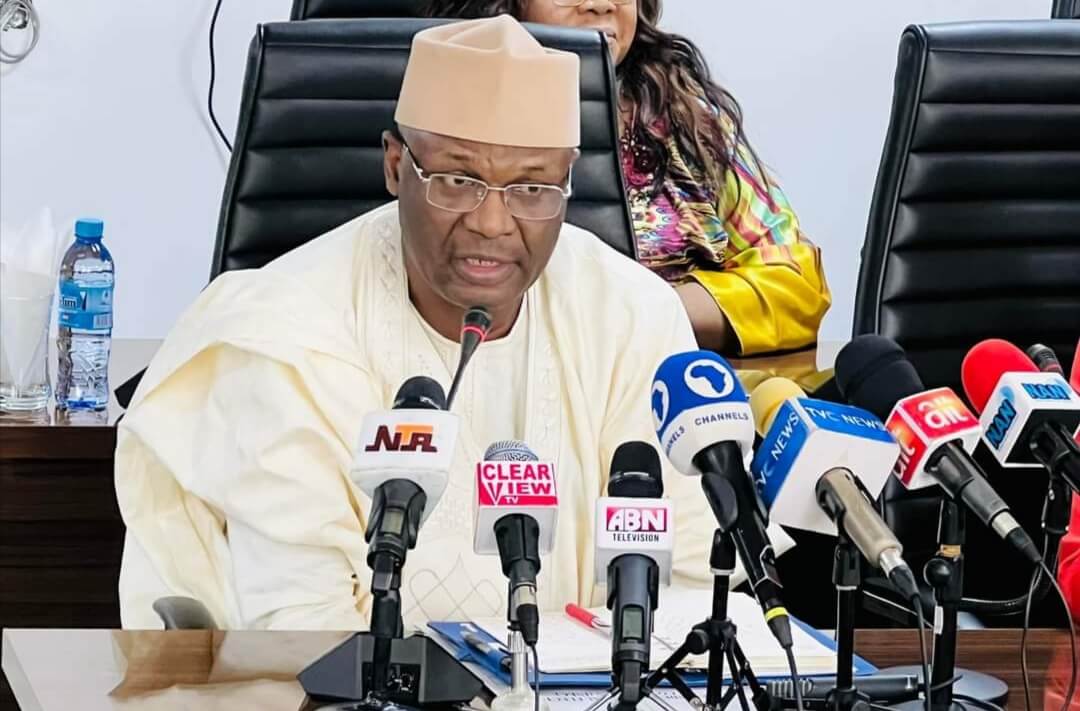Tinubu, Atiku, Others May Campaign In Prisons As INEC Mulls Inmates’ Voting In 2023
The Independent National Electoral Commission (INEC) is considering the possibility of allowing political parties and their candidates to muster electoral support from inmates across correctional facilities in the country.
INEC resumed discussions with the Nigerian Correctional Service (NCoS) to work out modalities on how eligible inmates can vote during elections.
Advertisement
Professor Mahmood Yakubu, Chairman of the Commission, on Tuesday received the Comptroller General of the NCoS, Haliru Nababa, represented by the Deputy Comptroller General in charge of Operations, Daniel Odaro, during which the correctional service made a case for inmates’ voting during general elections.
Yakubu, during the meeting, said that INEC was committed to inclusivity, including allowing inmates to exercise their voting rights at polls.
A Federal High Court in Benin had in 2014 ruled in favour of some prisoners who sought the determination of their rights to vote during elections but INEC and the NCoS have yet to reach draw up modalities for implementation.
Yakubu said, “We need to discuss the practicalities of how this can be achieved in Nigeria. Let me start with the legal framework. Section 12, sub-section 1 of the Electoral Act 2022 lists five qualifications for registration as a voter in Nigeria, because you have to register as a voter before the right to exercise that right is conferred. That section of the Electoral Act has at least five qualifications.”
Advertisement
“Number one, the prospective registrant must be a Nigerian citizen. Number two, he or she must be 18 years of age, at least. Number three, he or she must originate, reside or work in the local government or be covered by the registration centre or the point of registration. Number four that citizens of Nigeria must present himself or herself to the registration officer for registration and support. And number five, which is really critical to our discussion today, is that he or she must not be subject to any legal incapacity to vote under any law, rule, or regulation imposed in Nigeria”.
He added, “this is one area that we need to discuss so that we know the categories of inmates that will exercise the right to vote, therefore we need to work things out carefully. We want transparency of the process, because everything that we do in the Commission, particularly when it comes to the rights of citizens to vote, must be done transparently”.
Other areas of concern raised by INEC include, “Location of Polling Unit for Inmates, possibility of political party campaigns in the correctional facilities, voter education for inmates, voter registration for inmates, and observers’ access to correctional facilities to monitor elections if polling units have to be situated in the facilities”.
According to Yakubu, including eligible inmates in the electoral process is important but he noted that “we have only a little over seven months to the next general election. But the next general election is not going to be the last election conducted by Nigeria. So, even if we don’t meet all these critical thresholds, or 2023. We’ll continue with a discussion to see what happens beyond 2023”.
As of April 2020, Comptroller General of the Nigerian Correctional Service, Ja’afaru Ahmed, said the country’s total prison population stood at 73,726.
Advertisement
Allowing inmates’ voting in 2023 may see presidential aspirants such as Asiwaju Bola Tinubu of the All Progressives Congress (APC), Atiku Abubakar of the Peoples Democratic Party (PDP) and Peter Obi of the Labour Party, amongst others, taking their campaigns to the prisons to canvass for votes.



